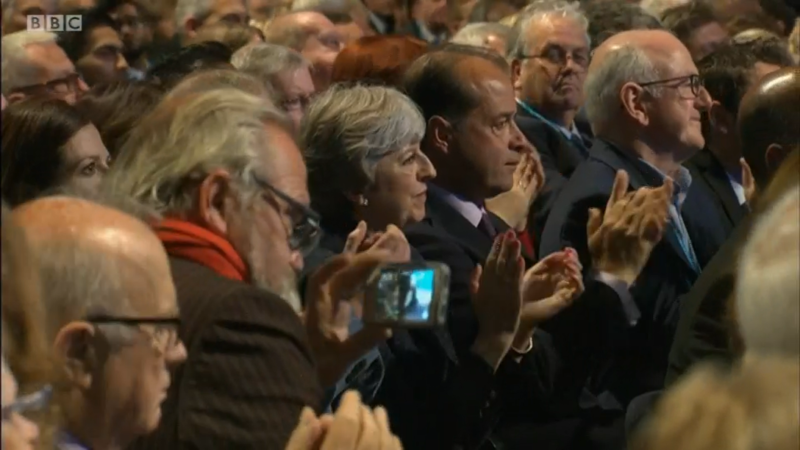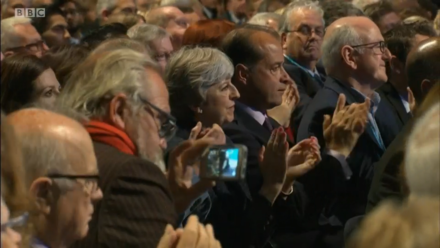

Universal credit has become a parliamentary inconvenience for Theresa May and the Tories. May has struggled to justify the policy in both of the last two prime minister’s questions and Tory MPs were whipped to abstain in last week’s opposition debate on pausing its roll-out.
In yesterday’s head-to-head with Jeremy Corbyn, May stated that four out of five claimants were satisfied with the service. As Corbyn then pointed out, it’s not as if it’s a good thing for 20 per cent to be unhappy with their treatment. He also quoted a Tory Welsh Assembly member saying “I cannot understand why a six or four week gap is deemed acceptable. It should be a seamless transition… this cavalier attitude that the poorest can muddle through is callous at best and downright cruel at worst.”
A delay of six weeks before claimants receive the benefit will leave a multitude of already struggling people with nothing to fall back upon unable to feed or house themselves. Most of the people affected will be in the private rental sector and vulnerable to eviction.
They will be forced to throw themselves upon the mercy of one of the few boom sectors in our broken economy: food banks. It’s a prospect the Tories will welcome. In 2013 Esther McVey, then employment minister, said “In the UK it is right that more people are… going to food banks because as times are tough, we are all having to pay back this £1.5 trillion debt personally”.
To McVey, food banks are an economic tool still helping the conversion of corporate debt into personal debt, to be owed by each and every one of us – no matter the consequences.
Of course the delay and its effects are not accidental. They are there by design, the are the whole point of the policy. People are supposed to suffer if they cannot find work, they are supposed to fear their punishment so much they will accept whatever is on offer, even if that is the humiliating kick provided by the gig economy.
The fundamental part of the policy given to the payment delays was illustrated by an intervention in this week’s emergency universal credit debate by Heidi Allen, a Tory MP who makes a habit of speaking against the worst excesses of her government then voting for them in parliament anyway.
Allen, in the spirit of compromise, asked if Labour would be satisfied if the delay was reduced from six weeks to four. The unacceptable nature of any deliberate delay in payment either didn’t occur to her or she realised her party would have no truck with it.
May’s attempt to justify universal credit during last week’s PMQs, while hardly controversial, let slip momentarily the true Tory attitude towards the very idea of social security, the safety net meant to guarantee none of us should meet with destitution, no matter what catastrophe befalls us.
In answer to a question from Laura Pidcock, May responded by saying the purpose of the benefit was “a more straightforward, simpler system that… encourages more people into work”.
The implication is that people need encouragement to get a job. May and the Tories fundamentally believe that people on the breadline won’t work to improve their lot unless there is some incentive to do so. The incentive built into universal credit, as with so many other Tory policies, isn’t a positive one. Carrots are for Bugs Bunny, this is yet another stick to beat the poor with.
With this in mind, May’s choice of words take on a sinister aspect. There’s an echo of Voltaire’s famous phrase from Candide on the execution of an admiral for failing to press home an attack, “pour encourager les autres”. It was later associated with executions of soldiers chosen at random for the failure of their units in the first world war. There’s a clear parallel to the principle here of punishing people so that others in the same situation will be coerced into acting in ways they otherwise might not.
This policy places in stark contrast the Tory outlook with that of Labour. The Tories believe that being out of work is a lifestyle choice rather than an unpleasant reality for most people and that the purpose of the welfare system is to force people into making approved choices rather than a means to maintain the subsistence of those who cannot provide for themselves.
Pidcock’s original question last week, of whether the policy was gross incompetence or calculated cruelty, could be answered by saying that it’s a bit of both. Ironically May’s answer, meant to dispel the suggestion of either, confirmed the cruelty. Meanwhile the incompetence is there for all to see in the slowly unfolding disaster of the universal credit roll-out.
Mark Brophy is a writer and trade unionist who lives in Newcastle.




More from LabourList
Which ministers have done the most and fewest broadcast rounds in year one?
‘Welfare reforms still mean a climate of fear. Changes are too little, too late’
Welfare bill: Which MPs are still voting against reforms?